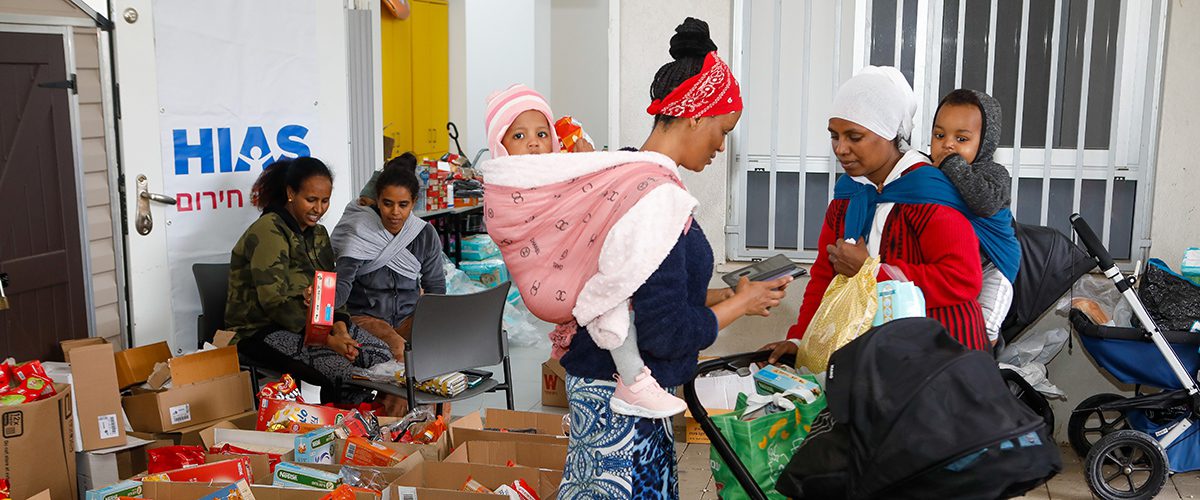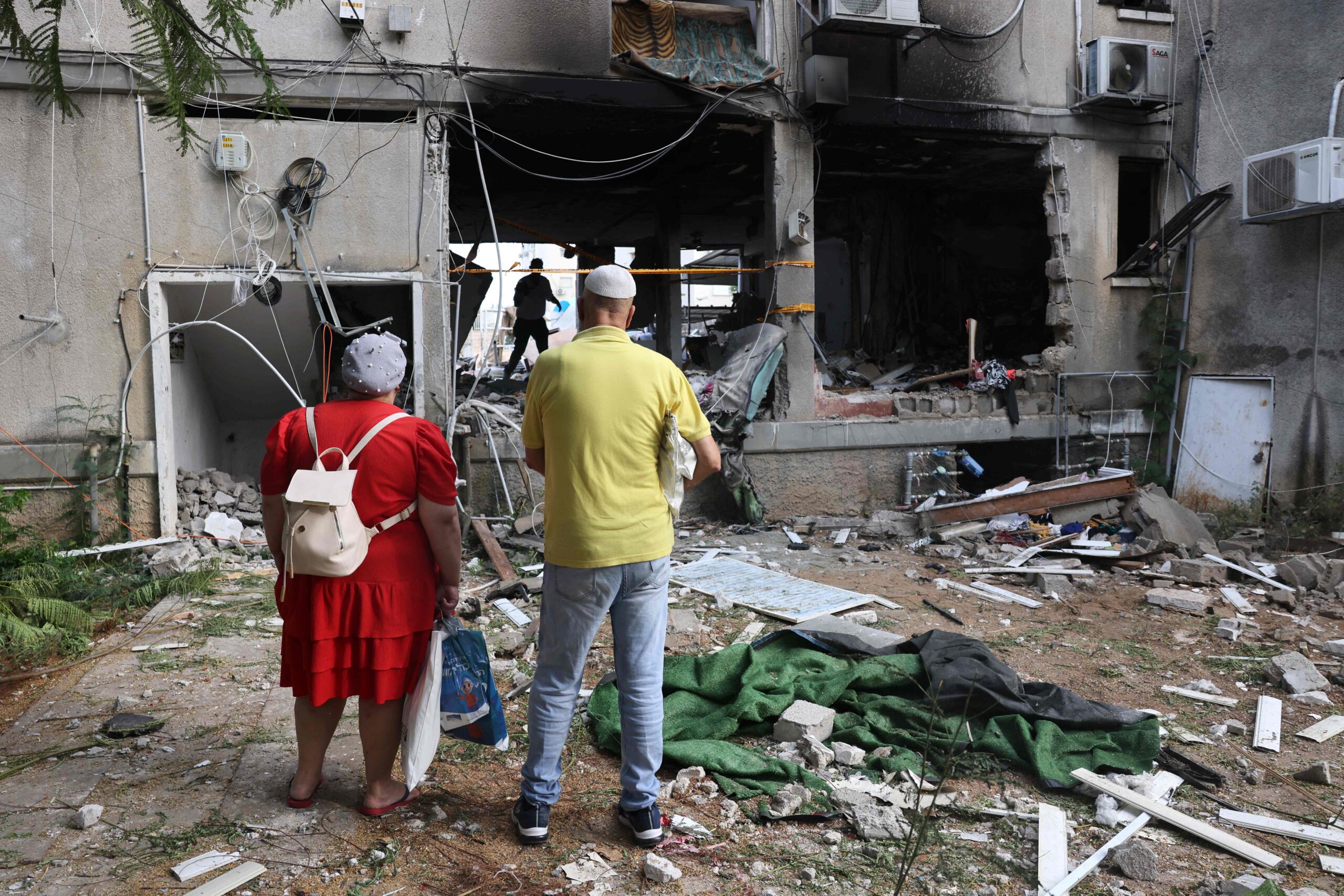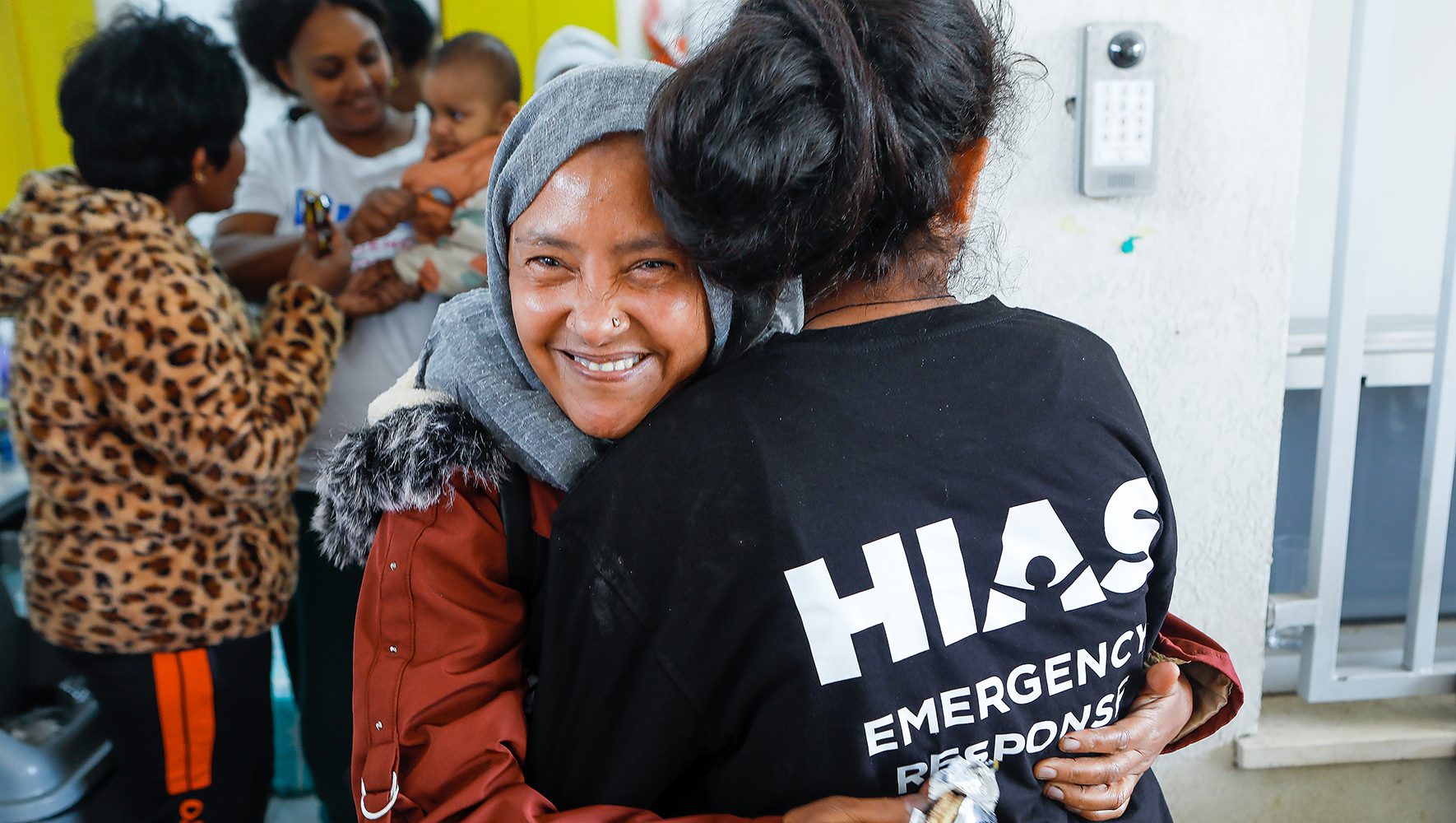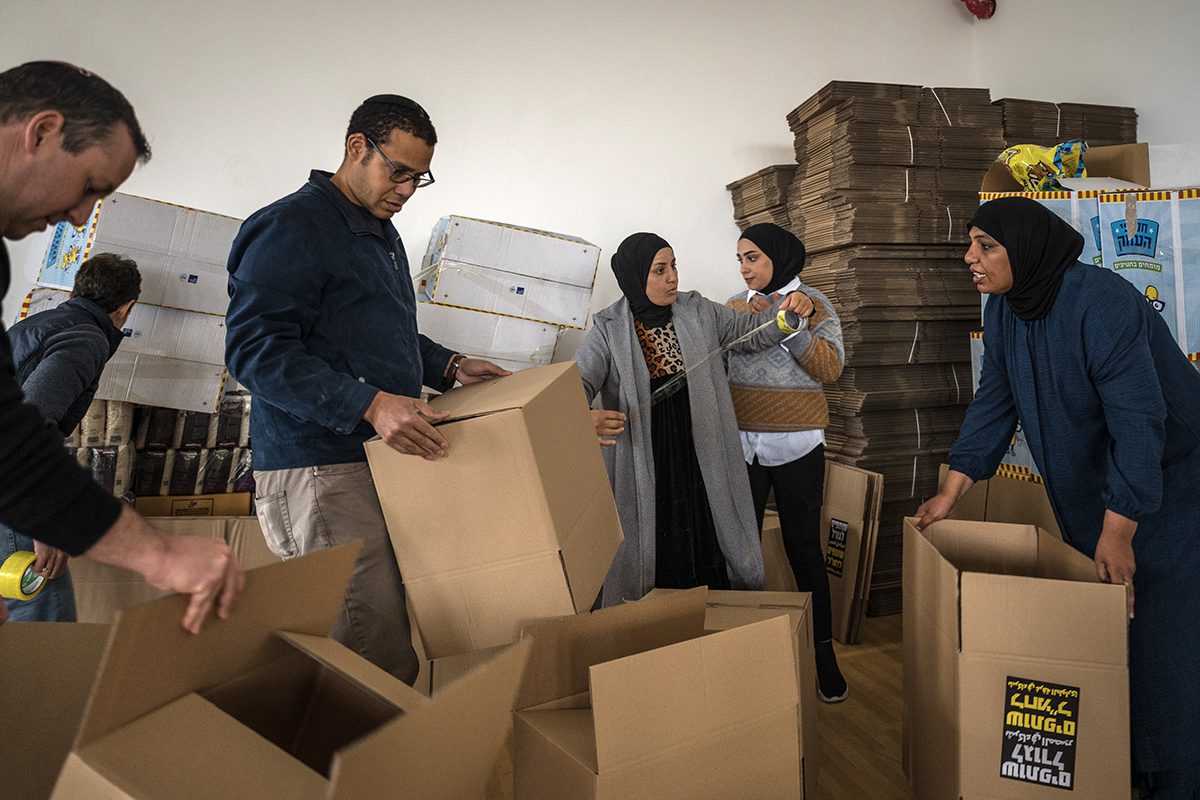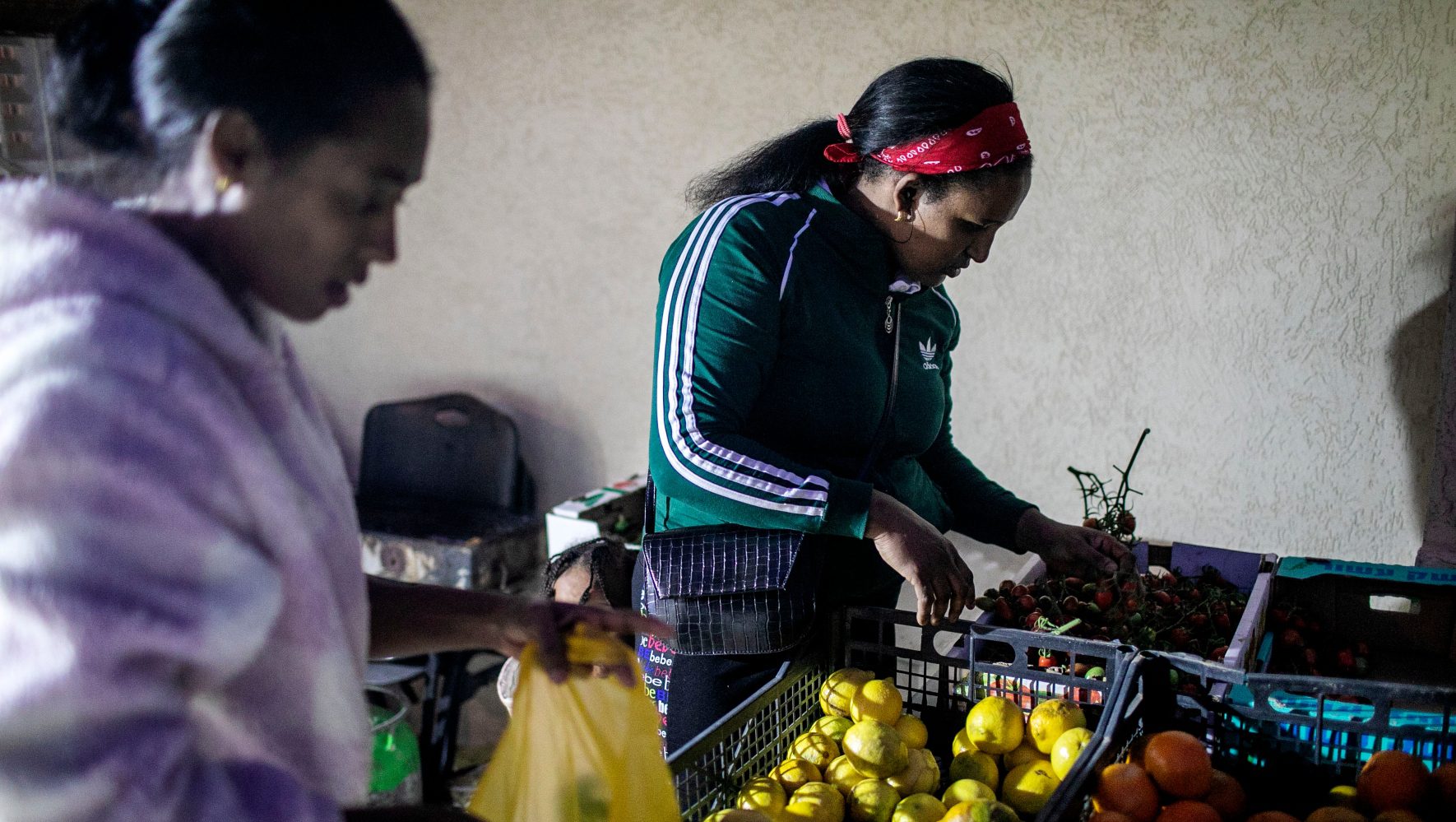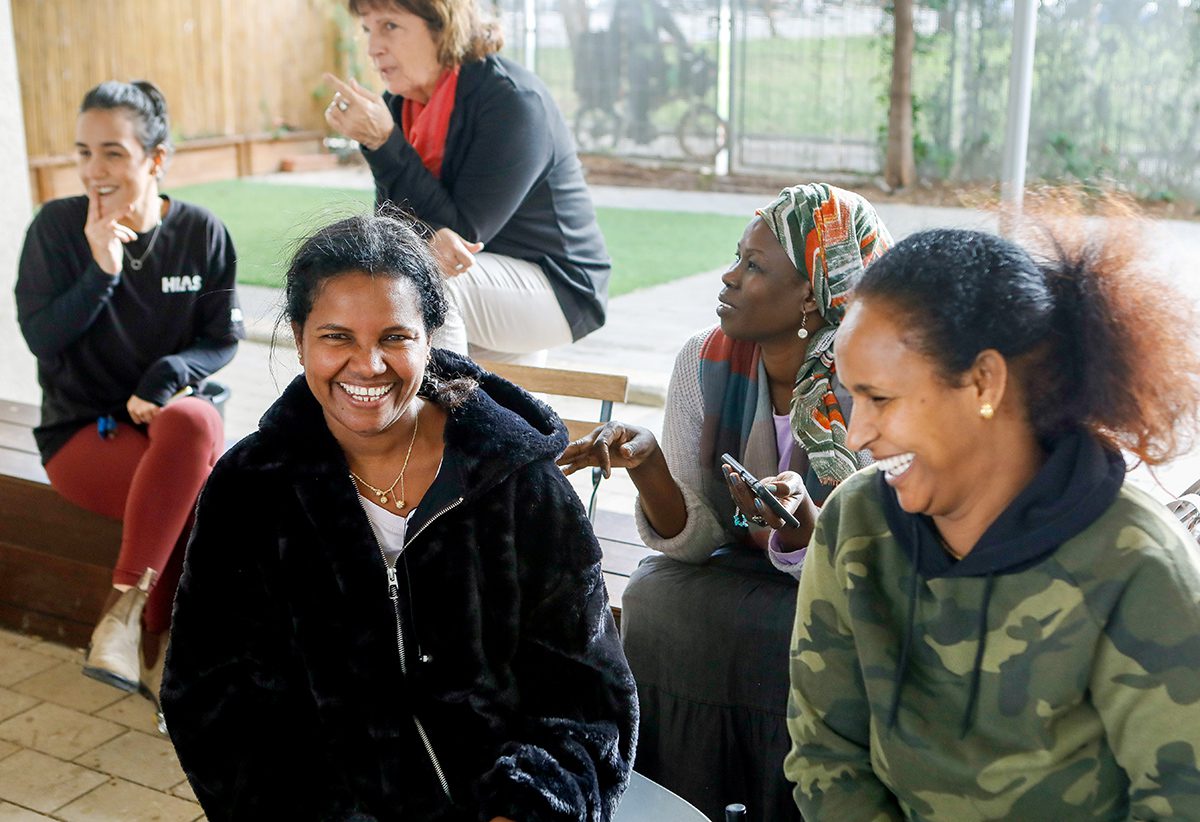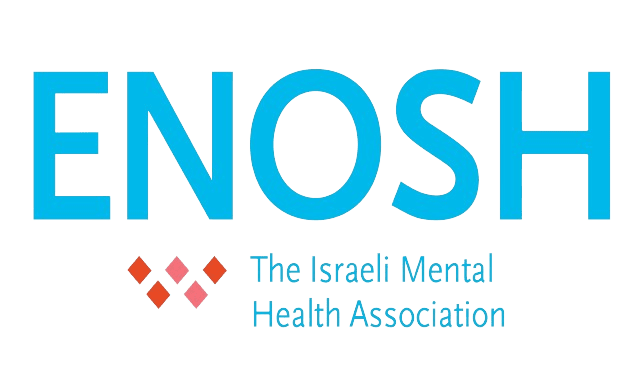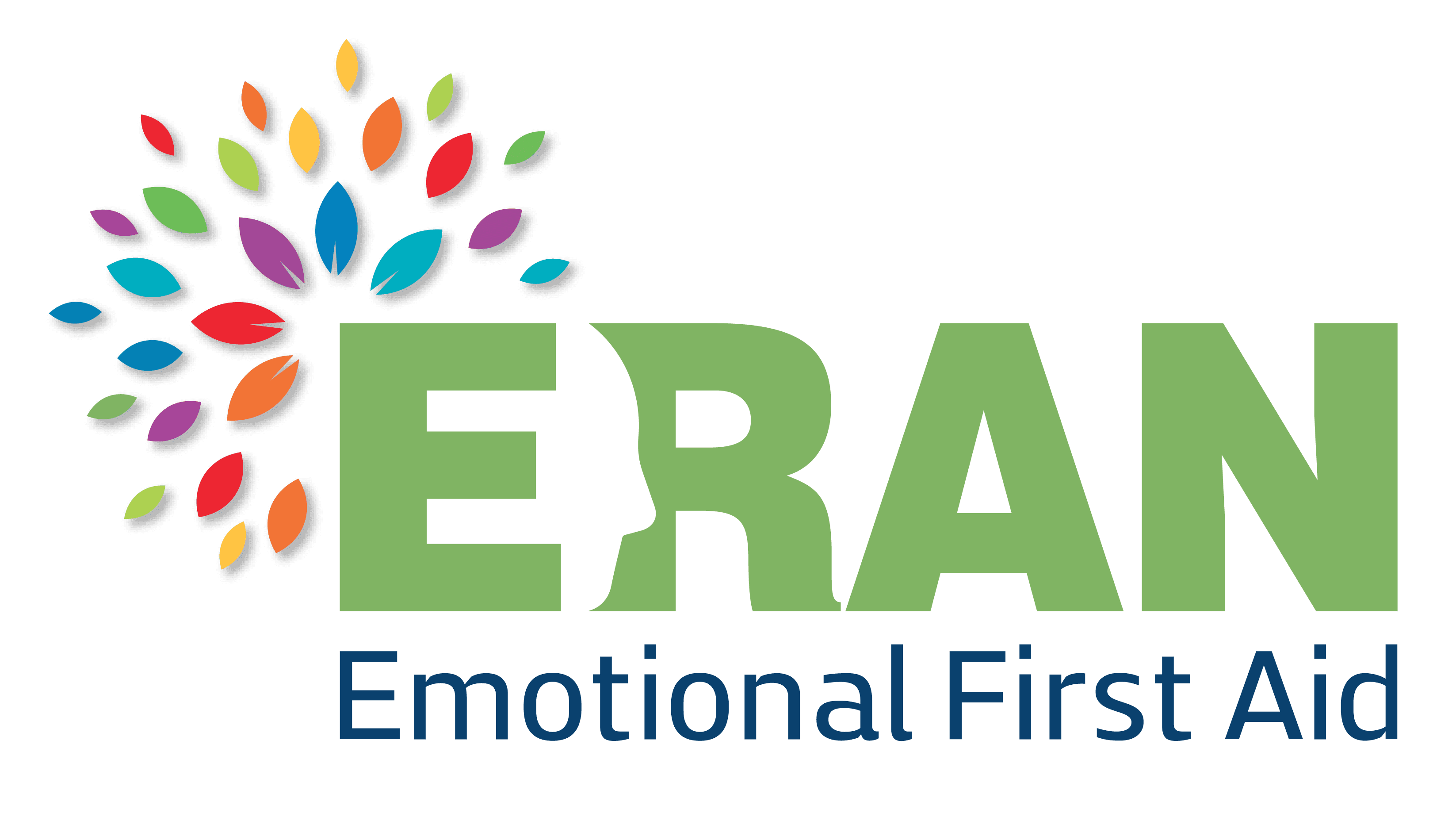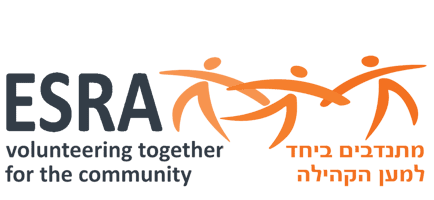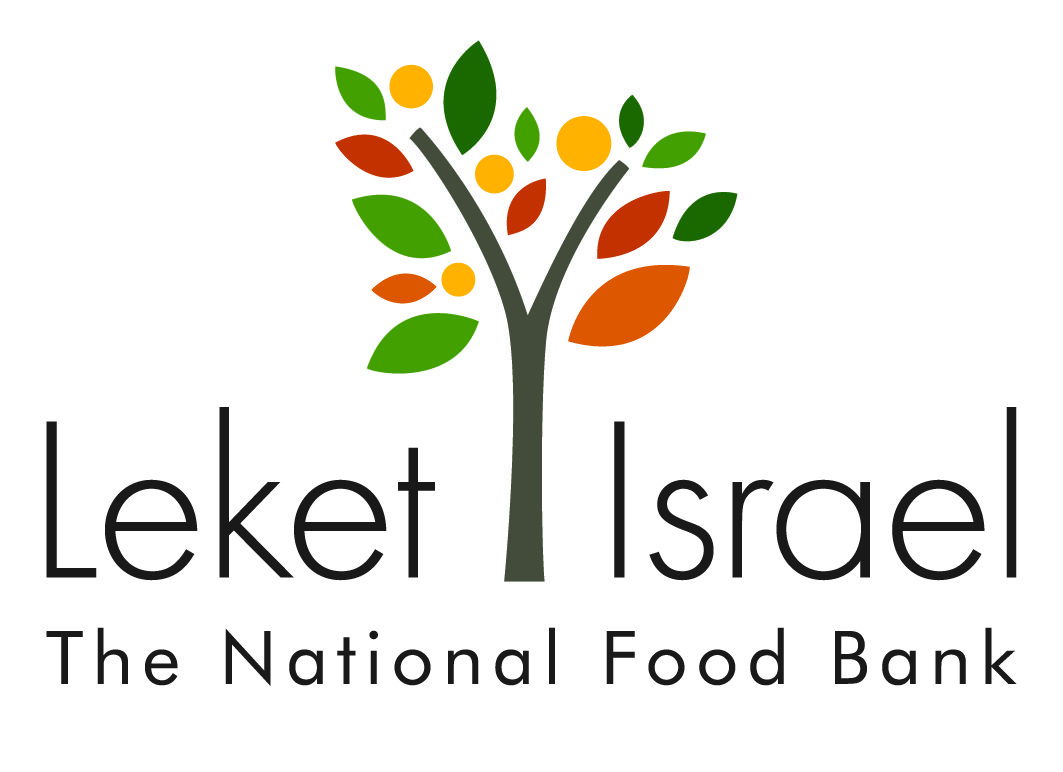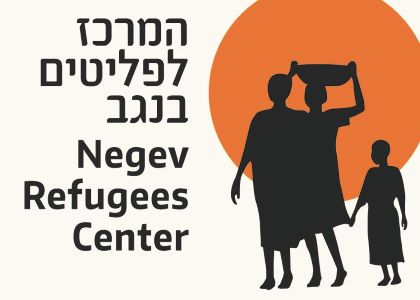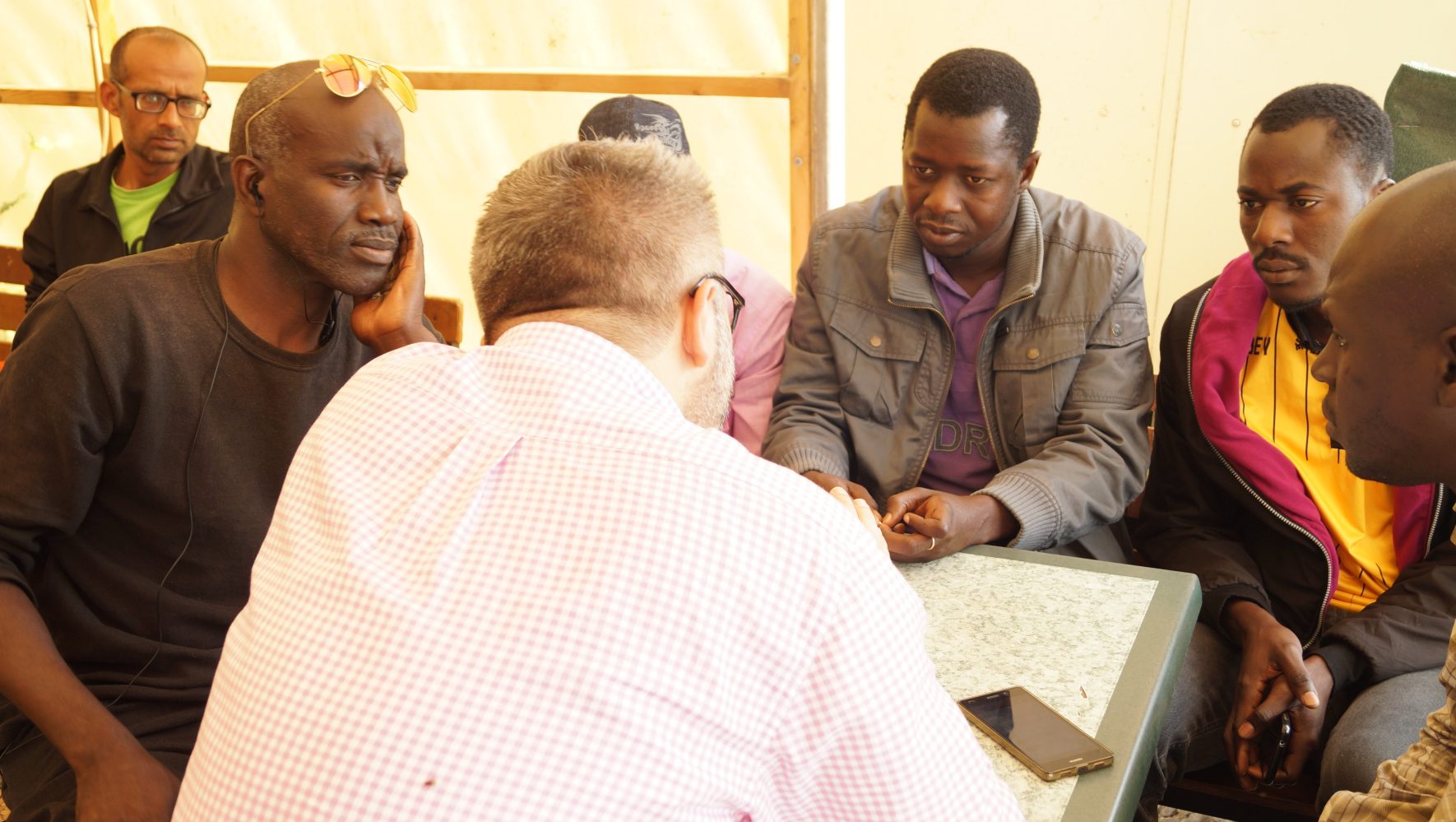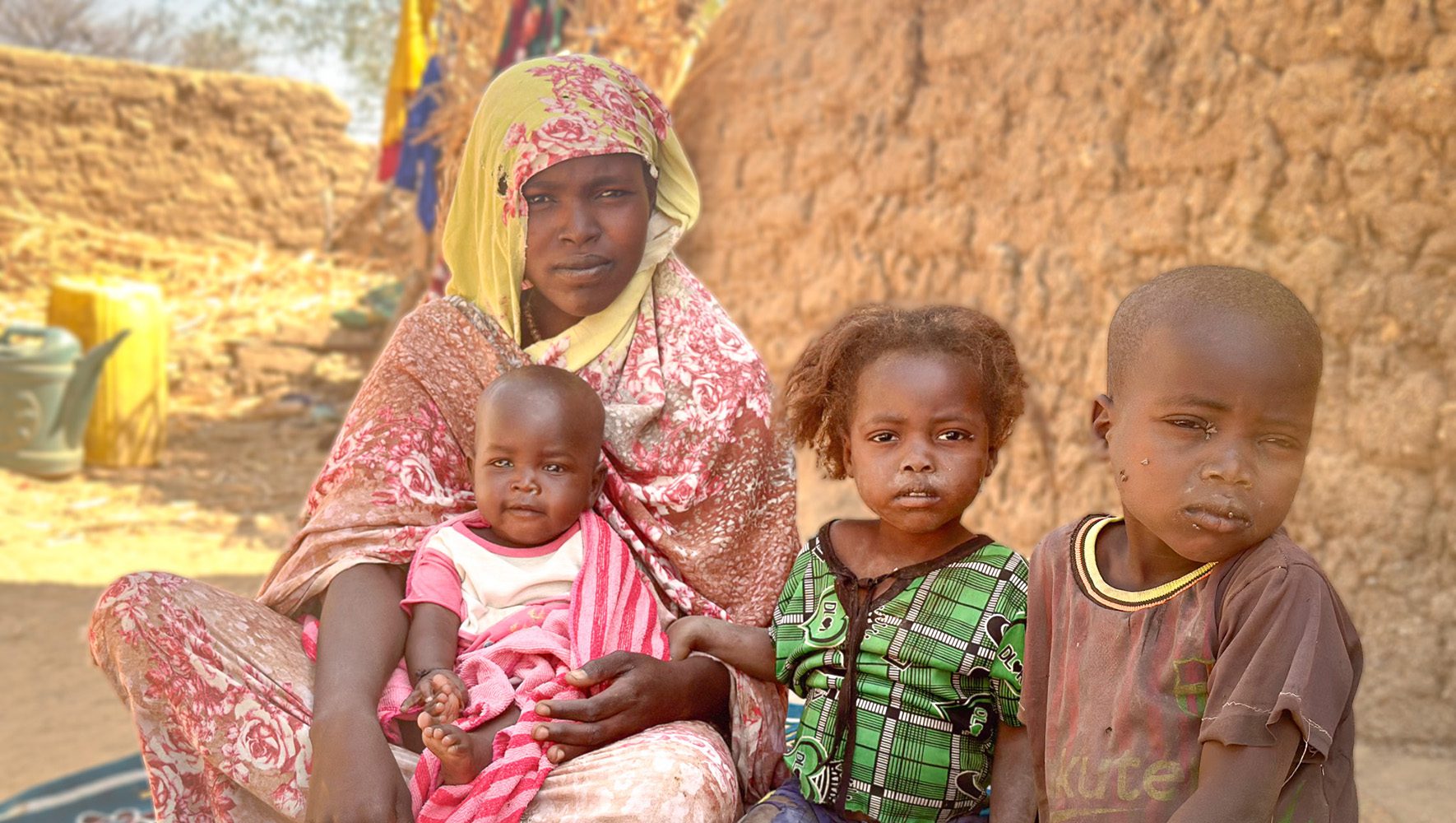Two displacement crises arose in the wake of the attacks: one in Israel, and one in Gaza. In each crisis, civilians, traumatized by violence, have been uprooted from their homes, unsure when they will be able to return.
In Israel, families advocate for the release of the estimated 58 people still held hostage in Gaza. Israelis who were internally displaced, including dozens of communities near the Gaza Strip and along the border with Lebanon, have slowly returned to their homes.
Support from government and civil society organizations, including HIAS and our partners, has made significant progress in addressing the needs of displaced populations within Israel. But the same cannot be said for the nearly 2 million Palestinians displaced in Gaza, where blockages of aid and the near complete destruction of infrastructure has resulted in a humanitarian catastrophe. Palestinians now face famine and disease, and must contend with simultaneous shelter, water, sanitation, and healthcare crises.
